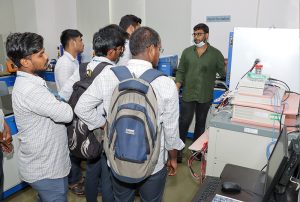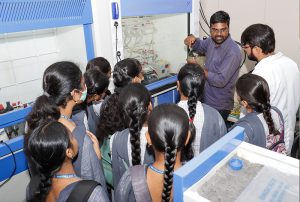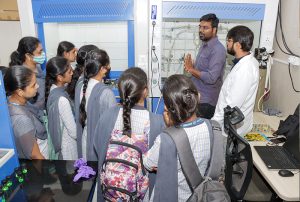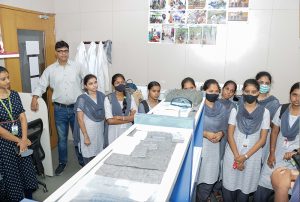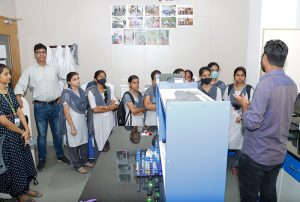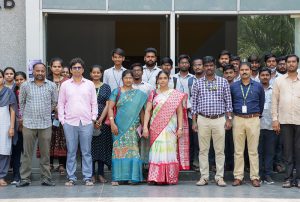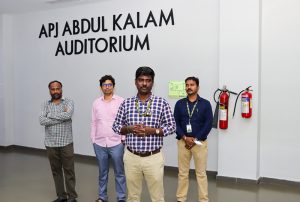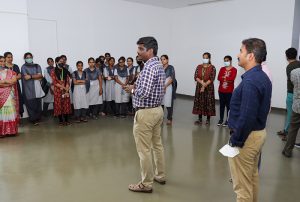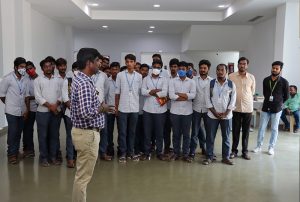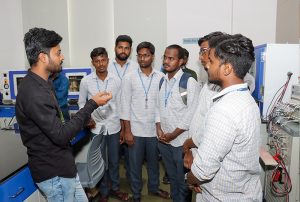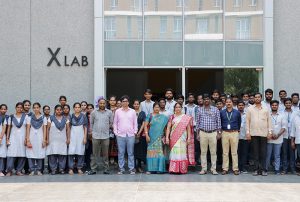SRMAP Departmental Events
- Scope for sponsored projects and its implementation May 10, 2022
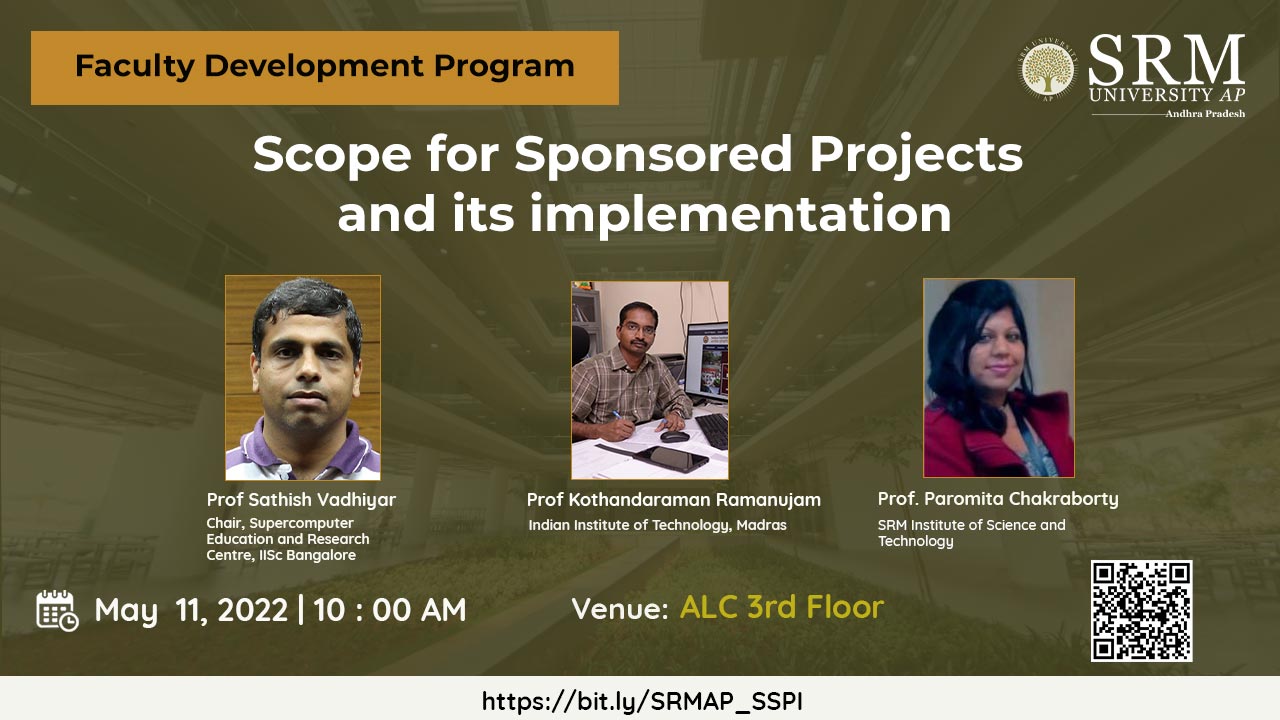
The Department of Physics is organising a Faculty Development Program on ‘Scope for Sponsored Projects and its Implementation’ with eminent academicians, Prof Sathish Vadhiyar, Chair, Supercomputer Education and Research Centre, IISc Bangalore and Prof Kothandaraman Ramanujam, Indian Institute of Technology, Madras.
Date: May 11, 2022
Time: 10.00 am
Venue: ALC 3rd Floor
Discussing the scopes and challenges of such sponsored projects is inevitable as it determines the progress in its execution. Documenting a list of the project goals, deliverables, tasks, costs and deadlines is, therefore, an important part of this process. This will help in establishing the objectives of the project, analysing its limits, and providing a roadmap to move ahead.
Prof Sathish Vadhiyar will deliver a talk on the National Supercomputing Mission (NSM) Program which was introduced by the government of India with an aim to connect national academic and R&D institutions with a grid of high-performance computing facilities. This is an effort to improve the number of supercomputers owned by India. Prof Kothandaraman Ramanujam will provide a brief awareness regarding consultancy projects set up with the industry through his talk. The session will be wrapped up by Prof Paromita Chakraborty who will give an overview of funded projects and bilateral projects.
Join here for an informative session.
Continue reading → - Inspiring the world with quality research facilities May 7, 2022
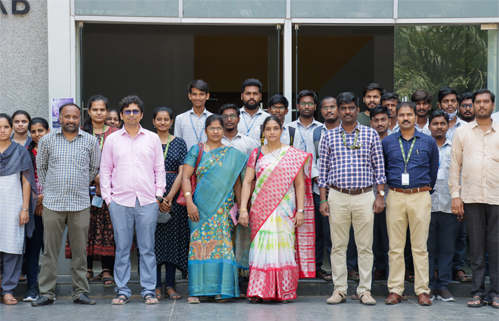 SRM AP is known for its resources and facilities for pioneering research with the support of global leaders and SME’s while sticking to compliance and international regulations. Obtaining research excellence in every field of study has been a mission of the university. Recently, 50 MSc students from the Department of Chemistry, KBN College, Vijayawada, visited our university to explore the analytical and research facilities available here.
SRM AP is known for its resources and facilities for pioneering research with the support of global leaders and SME’s while sticking to compliance and international regulations. Obtaining research excellence in every field of study has been a mission of the university. Recently, 50 MSc students from the Department of Chemistry, KBN College, Vijayawada, visited our university to explore the analytical and research facilities available here. The research areas handled by the Department of Chemistry of SRM AP include the disciplines of chemical sciences, ranging from organic, inorganic, and physical, to theoretical or computational chemistry. The department’s highly disciplinary and collaborative environment is indeed inspiring, and it continues to grab attention. The strong interactions of the university with other premier institutions across India and around the world refine the quality of analytical and research facilities available here. The students from KBN college eagerly interacted with the faculty members and research scholars. Dr Mahesh Kumar Ravva and Dr Rajapandiyan, Faculty members, coordinated the visit.
Continue reading → - Engineering and research challenges in building smart cameras May 6, 2022
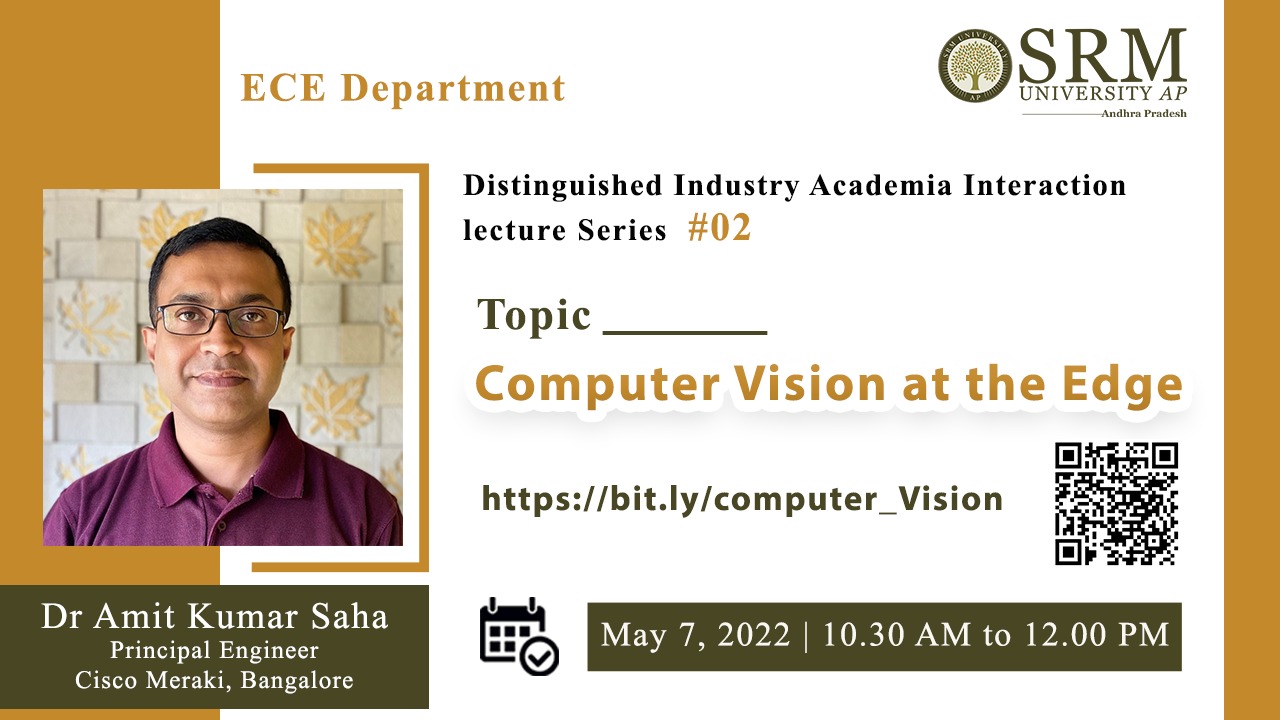 Machine Learning has started its move from the cloud to the periphery of the network. Today’s edge devices are becoming smarter and are no longer the dumb devices that would simply transmit the data to some central location. The Department of Electronics and Communication Engineering is conducting the 2nd department distinguished Industry-Academia Interaction lecture in the ECE DDIAIL series. Dr Amit Kumar Saha, Principal Engineer at Cisco Meraki, Bangalore, will deliver a talk on the topic ‘Computer vision at the edge’.
Machine Learning has started its move from the cloud to the periphery of the network. Today’s edge devices are becoming smarter and are no longer the dumb devices that would simply transmit the data to some central location. The Department of Electronics and Communication Engineering is conducting the 2nd department distinguished Industry-Academia Interaction lecture in the ECE DDIAIL series. Dr Amit Kumar Saha, Principal Engineer at Cisco Meraki, Bangalore, will deliver a talk on the topic ‘Computer vision at the edge’.The talk will focus on the evolution of a specific type of edge device, the surveillance camera, from the traditional CCTV model to the smart camera model. It will discuss some of the engineering and research challenges in building smart cameras that lie at the periphery of the network.
Date: May 7, 2022
Time: 10.30 am to 12.00 pm IST
About the speaker
Dr Amit Kumar Saha is the Principal Engineer at Cisco Meraki, Bangalore. He received his PhD degree from Rice University in 2007. Prior to that, he obtained his BTech degree from IIT Kharagpur as a recipient of Dr B C Roy Gold Medal in 1999 for being the single graduating student with the best mix of academics and extracurricular activities. Dr Amit explores the next generation of technology at the intersection of networks, distributed systems, and data science, with a special emphasis on system-wide design. He is part of Cisco Meraki’s Camera Intelligence team and enables Cisco’s internal products as well as customers better manage their AI/ML life cycles by making it easier to train and tune models and deploy distributed machine learning workloads. He passionately seeks out opportunities to give back to the community through talks, research collaborations, organising conferences, and as visiting faculty at several top institutes in India.
Join the webinar and learn from industry professionals
- Know your style of writing May 4, 2022
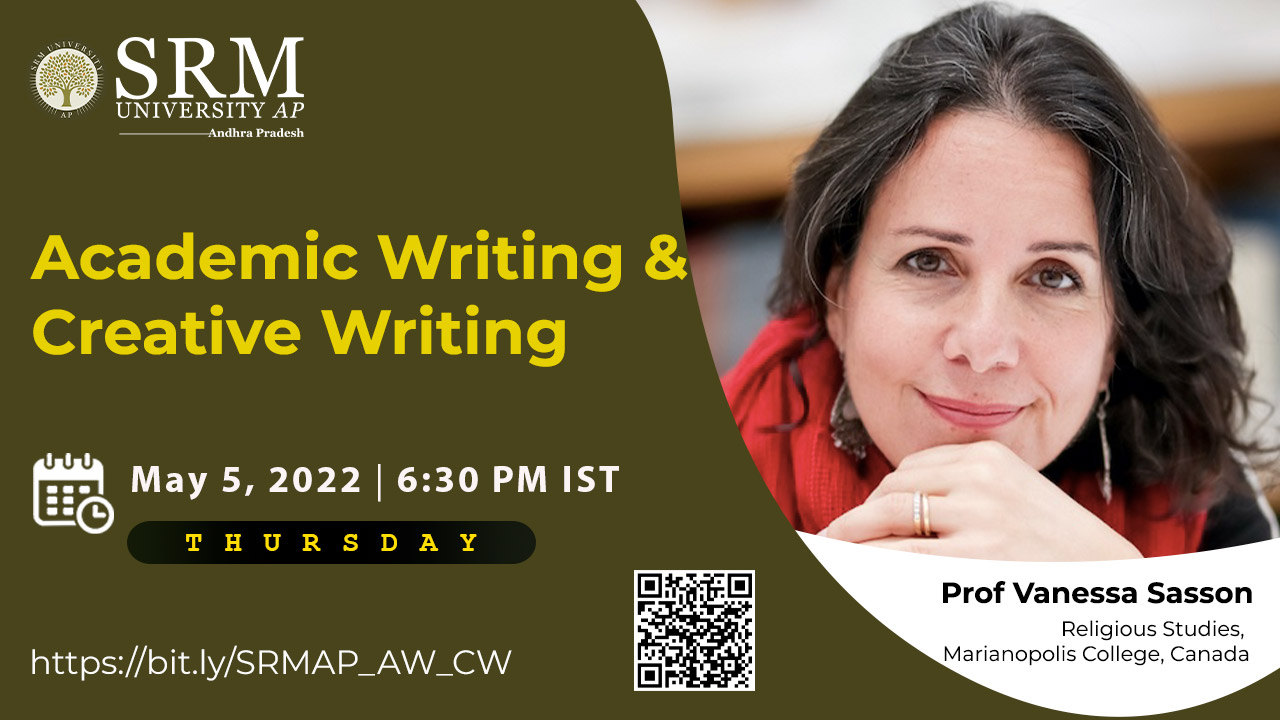
The art of writing can be branched out into different types depending upon the purpose of each piece of writing. You might have come across varied styles of writing such as creative writing, academic writing, technical writing and many more. Have you ever tried to deduce the difference between all these writing styles? Well, we offer you an informative session that will help you gather a better understanding of different styles of writing.
The Department of English has scheduled a webinar on the topic “Academic Writing & Creative Writing” under the theme “Language and Society” with Prof Vanessa Sasson as the keynote speaker.
Date: May 05, 2022
Time: 6.30 PM IST
Academic writing and creative writing seem to be pulling the act of writing and the writers in two different directions. A lot of writers, especially aspiring writers, tend to think of both genres as catering to very different audiences and fulfilling very different needs in very different contexts. Does that mean you can be only one and not the other? Do you have to choose? And how do you decide what to commit to? In this talk, Prof Vanessa Sasson will share her experience of writing in both capacities and discuss the joys and challenges of both.
About the Speaker
Vanessa R Sasson is a professor of Religious Studies in the Liberal Arts Department of Marianopolis College where she has been teaching since 1999. She is also a Research Fellow at the University of the Free State and a Research Member for CERIAS at UQAM. She has published widely as a scholar, with a number of academic books to her credit. Her most recent book was published by the University of Hawaii Press (2021) and is entitled, Jewels, Jewelry, and Other Shiny Things in the Buddhist Imaginary. Yasodhara and the Buddha (Bloomsbury, 2021) is her first novel. She is currently completing the sequel.
Join the Webinar to master the art of writing!
Continue reading → - Stay Curious! Join the Research Clan April 25, 2022
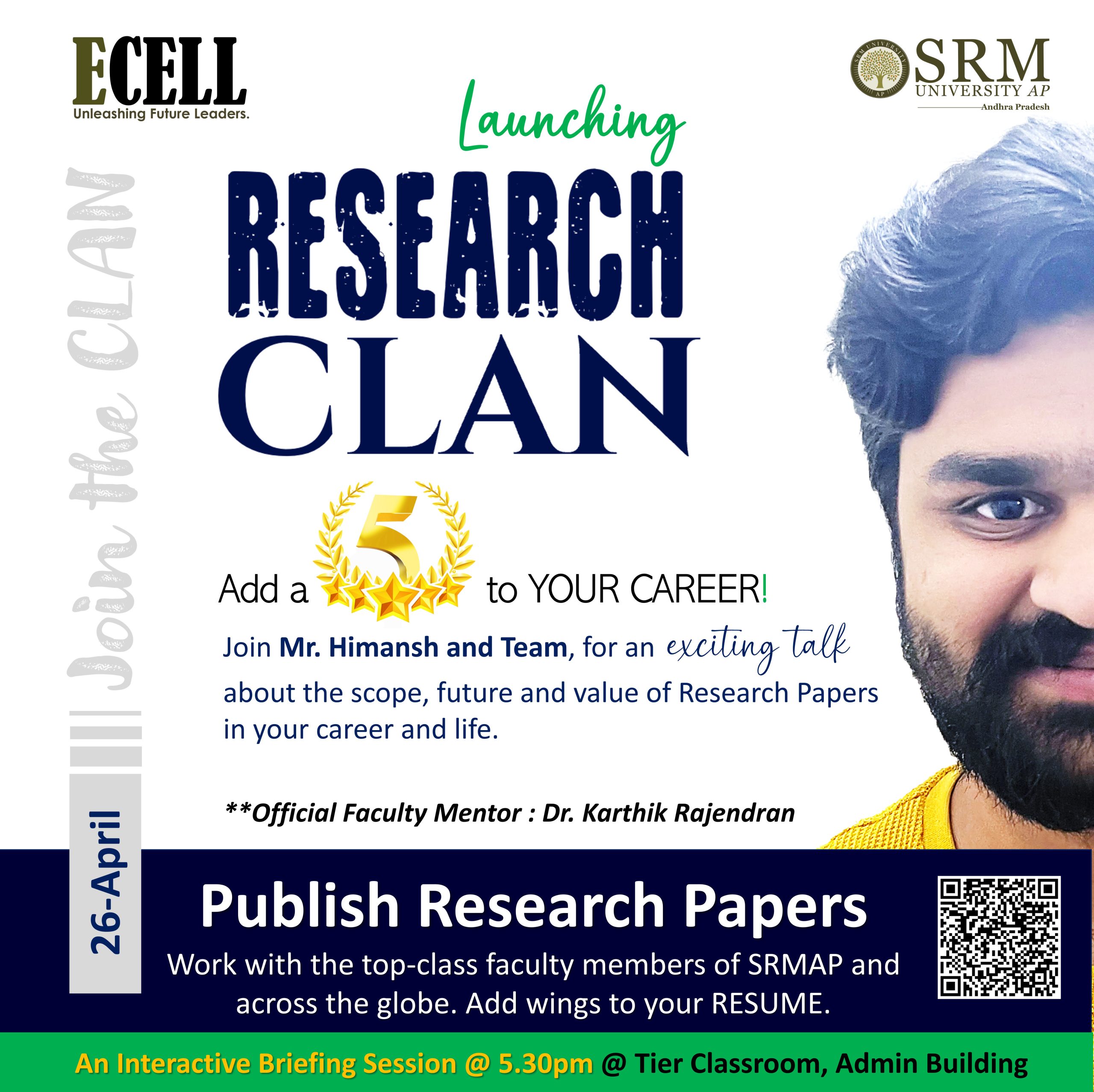 The whole purpose of education is to turn mirrors into windows – Sydney J Harris
The whole purpose of education is to turn mirrors into windows – Sydney J HarrisEvery day is a chance to learn and unlearn things. The higher the curiosity to know more, the deeper your roots in a hopeful life. Productive utilization of knowledge has always been the key to success. Finding the application levels of the knowledge you gained and reflecting on yourself makes a huge difference from passive learning.
The Department of Entrepreneurship and Innovation is proud to announce the launch of Research Clan. This community holds the insights of research works and converts the concepts into something useful for the world. Mr. Himanshu and the team will be presenting an exciting talk about the scope, future, and value of Research papers in your career and life.
Join the clan on April 27, 2022, at 5.30 pm
Venue: Tier Classroom, Admin Building
Continue reading →


